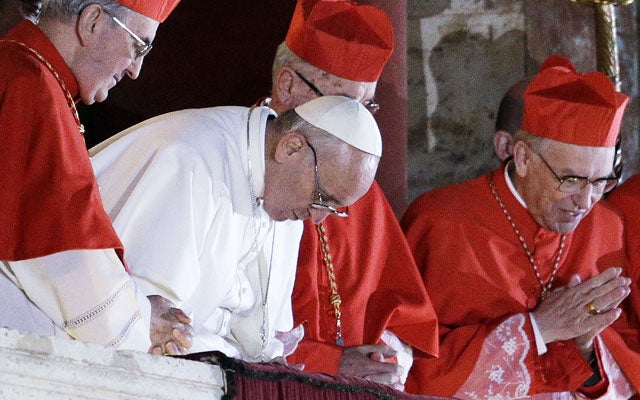Pope Francis I and Latin America
Jessica Zuckerman / Ray Walser /
Yesterday, in Rome, the world watched as white smoke rose from the Sistine Chapel and the new pope was named. Many watched this most recent papal conclave with great intrigue after Pope Benedict XVI became the first pope to abdicate in nearly 600 years. Now with the selection of Argentine Jorge Mario Bergoglio—now Pope Francis I—the Catholic world has yet another first, the first non-European pope in 1,272 years and the first ever pope from the Americas.
The ranks of Catholics in the Americas have certainly grown in recent years, particularly in Latin America. The region is now home to approximately 41 percent, or 483 million, of the world’s Catholics up from 59 million in 1990. Together with this growth, the selection of Pope Francis will likely shine greater light on the prominence and importance of Latin America and the Caribbean on the world stage.
Indeed, the effects of the election for the region will likely be multifaceted. For one, it may serve to strengthen the voices and determination of those who see the region as increasingly confident and on the rise thanks to greater democracy, market-based economic reforms, fiscal discipline, and declining poverty. This forward movement is led by emerging geopolitical giant Brazil, which will host not only upcoming mega-events such as the 2014 World Cup and the 2016 Olympics but other mega-events such as World Catholic Youth Day in July 2013, which is to draw as many as a million of the Catholic faithful together. Chile and Colombia are also undergoing strong economic growth and modernization.
Of course, while the news of Pope Francis will be welcomed by most in the Americas, there are others—such as the followers of the late Hugo Chavez—who believe that secular, socialist leaders instead offer the path toward delivering social justice in Latin America. Many Chavistas also see the Catholic Church and its upholding of the values of liberty, duty, and faith as a threat to the socialist agenda. Nevertheless, a Latin American pope can also help the Church redouble its efforts to fight poverty, discrimination, and social exclusion.
Ultimately, the selection of Pope Francis I is of course, first and foremost, a moment of great religious significance for millions. For Latin America, however, the decision may have even greater meaning and effect.

